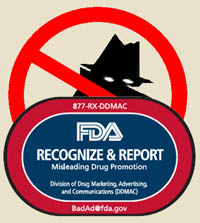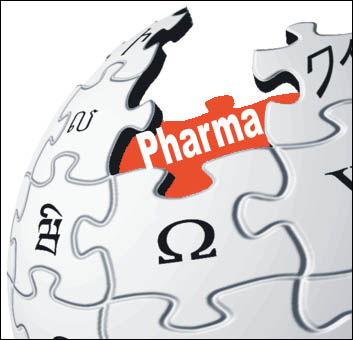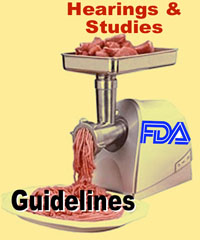Vol. 11, Issue No. 6: 29 JUNE 2012 – EXECUTIVE SUMMARY  Welcome to Volume 11, Issue No. 6 (29 June 2012) of Pharma Marketing News. Thank you for visiting. See the featured article summaries below.
Welcome to Volume 11, Issue No. 6 (29 June 2012) of Pharma Marketing News. Thank you for visiting. See the featured article summaries below.
I invite you to become a subscriber and get the next issue FREE!
John Mack, Publisher & Editor
editor@news.pharma-mkting.com
@pharmaguy Pfizer’s Short-lived LIPITOR Branded Mobile App Was It a ‘Bad Ad’ or Just a Bad Idea?
 On May 22, 2012, Pfizer and Eating Well Media Group, publisher of Eating Well magazine, announced the launch of Pfizer’s Lipitor For You “Recipes 2 Go” mobile application, marking the first time Pfizer has released a consumer mobile app for a prescription product in the U.S.
On May 22, 2012, Pfizer and Eating Well Media Group, publisher of Eating Well magazine, announced the launch of Pfizer’s Lipitor For You “Recipes 2 Go” mobile application, marking the first time Pfizer has released a consumer mobile app for a prescription product in the U.S.
The timing of the app’s launch is curious given the fact that a few weeks before, Pfizer announced it was suspending all promotion of Lipitor (see “Pfizer Throws In the Lipitor Marketing Towel“). Maybe, therefore, it was a bad idea.
It may also have been a “Bad Ad.”
Is Pfizer promoting LIPITOR via this app? If so, it may be the first smartphone app considered by the FDA as a “Bad Ad” — i.e., “misleading” according to FDA regulations.
Topics include:
- Is This App an FDA-regulated Drug Ad?
- Submitted to FDA’s “Bad Ad” Program
- Deleted from iTunes But Not from iPhone
Read the entire article here:
http://ec2-54-175-84-28.compute-1.amazonaws.com/pharma-mkting.com/news/pmn116-article01.htm Here Come the Pharma Wikipedians The Pros and Cons of Pharma Employees Editing Wikipedia Articles
 Should pharmaceutical companies appoint employees as Wikipedia “spokespeople” to perform all edits to Wikipedia articles on behalf of the company?
Should pharmaceutical companies appoint employees as Wikipedia “spokespeople” to perform all edits to Wikipedia articles on behalf of the company?
That is the opinion of Bertalan Meskó, MD, founder and managing director of Webicina.com, who, in a June 13, 2012, open letter to pharmaceutical companies, invited them to “employ a Wikipedia editor if you want to make sure only evidence-based information is included in entries about your own products.”
Topics include:
- Open Letter to Pharma
- PhRMA’s Opinion
- Past Transgressions
- Survey: Should Pharma Edit Wikipedia Articles?
- Selected Tweets from the 15-June-2012 #hcsmeu Chat
Read the entire article here:
http://ec2-54-175-84-28.compute-1.amazonaws.com/pharma-mkting.com/news/pmn116-article02.htm
Supporting Patients via Twitter and Beyond ![]() Although nearly two-thirds of respondents to a 2009/2010 Pharma Marketing News survey thought that using Twitter for patient support activities would be somewhat or very effective, relatively few pharmaceutical companies are doing this on a regular basis. From time to time, however, it does happen. Boehringer Ingelheim shows how it’s done.
Although nearly two-thirds of respondents to a 2009/2010 Pharma Marketing News survey thought that using Twitter for patient support activities would be somewhat or very effective, relatively few pharmaceutical companies are doing this on a regular basis. From time to time, however, it does happen. Boehringer Ingelheim shows how it’s done.
Key takeaways and topics covered:
- Avoid Interferring with the Doctor-Patient Relationship
- Be Non-Promotional
- Respond Quickly
- Are Patient Support Specialists Needed?
- Benchmarking Social Media in the Pharma Industry
- How to Get It Right
Read the entire article here:
http://ec2-54-175-84-28.compute-1.amazonaws.com/pharma-mkting.com/news/pmn116-article03.htm
Are Some DTC Print Ads Too Educational and/or Persuasive?  The FDA often describes itself as a “data-driven” agency. That’s an understatement as far as approving drugs for marketing is concerned. FDA’s Office of Prescription Drug Promotion (OPDP) also wants to rely on robust data before it issues guidelines for advertising. Consequently, it often holds public hearings to learn from experts what research may be necessary to answer its questions about the impact of direct-to-consumer (DTC) or health professional advertising.
The FDA often describes itself as a “data-driven” agency. That’s an understatement as far as approving drugs for marketing is concerned. FDA’s Office of Prescription Drug Promotion (OPDP) also wants to rely on robust data before it issues guidelines for advertising. Consequently, it often holds public hearings to learn from experts what research may be necessary to answer its questions about the impact of direct-to-consumer (DTC) or health professional advertising.
Sometimes, however, it seems that the FDA uses studies to “table” or delay issuing guidelines. See, for example, “FDA’s Proposed Web Study Will Further Delay Social Media Guidelines” and “A Cautionary Tale for Anyone Expecting FDA Social Media Guidelines Any Time Soon.”
Recently, two FDA studies were in the news: “Disease Information in Branded Promotional Material” and “Effect of Promotional Offers in Direct-to-Consumer Prescription Drug Print Advertisements on Consumer Product Perceptions.” The focus of both these studies will be on print ads.
Key takeaways and topics covered:
- Do Mixed Disease Awareness/Branded Ads Confuse Consumers?
- Disease-Awareness Ads are Less Persuasive
- New Ad Format: Mixing Disease Information and Product Promotion
- LYRICA Print Ad as a Case Study
- Benchmarking Social Media in the Pharma Industry
- Drug Ads & Coupons
- Who’s the Decider? The Patient, the Physician, or the FDA?
- PhRMA’s Comments
- FDA’s Response
Read the entire article here:
http://ec2-54-175-84-28.compute-1.amazonaws.com/pharma-mkting.com/news/pmn116-article04.htm



![6 Digital Tools at the Center of Healthcare Digitalization [INFOGRAPHIC]](http://ec2-54-175-84-28.compute-1.amazonaws.com/pharma-mkting.com/wp-content/uploads/2021/04/6DigitalTools_600px-218x150.jpg)




![6 Digital Tools at the Center of Healthcare Digitalization [INFOGRAPHIC]](http://ec2-54-175-84-28.compute-1.amazonaws.com/pharma-mkting.com/wp-content/uploads/2021/04/6DigitalTools_600px-100x70.jpg)




